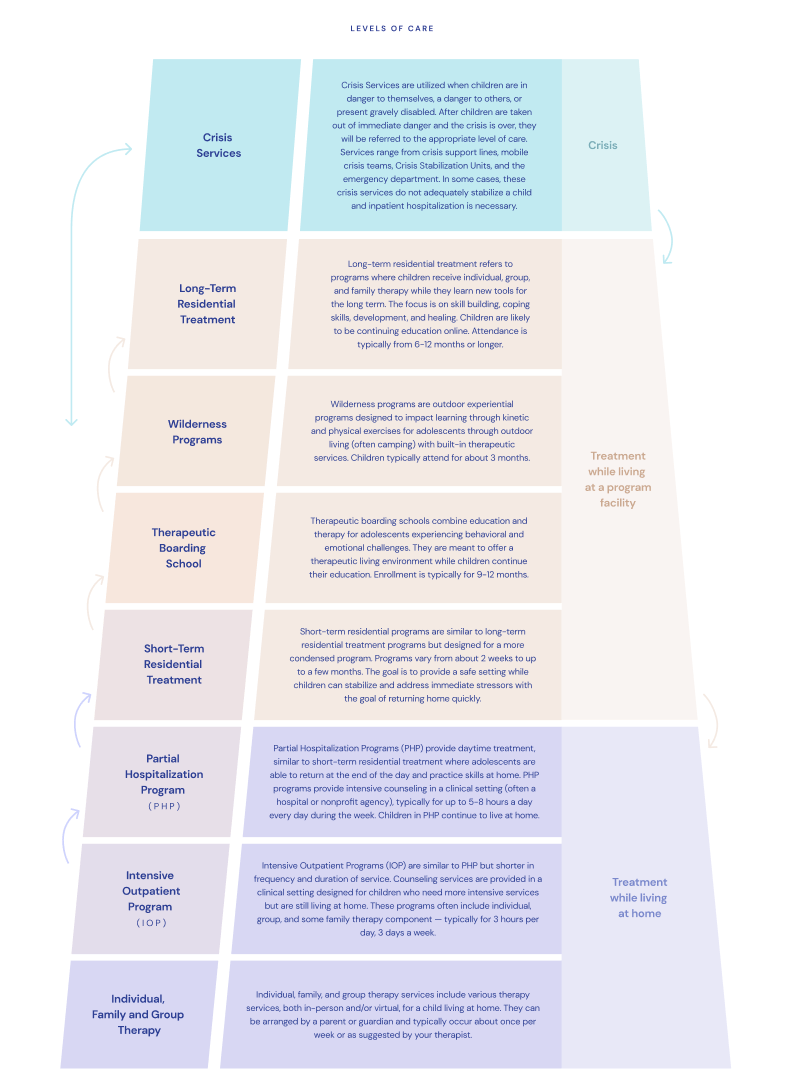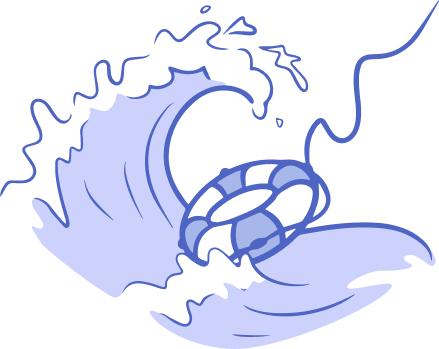Discover a way forward
Finding the right resources to help your child and your family is critical. It may feel overwhelming to understand the different types of programs and options available. We put the information you need in one place to help you find and decide the best fit for you and your child.
OVERVIEW
Navigate the world of treatment options for struggling teens
Understand what
your teenager is
struggling with
The first step is taking a deep dive into understanding the struggles of your child. This usually takes place with the help of a therapist, psychiatrist, neuro-psychology testing, or a combination of all of them. Often, families struggle for years before diagnoses are made. And getting a diagnosis may not be the solution — it is likely a start. In addition, many teens struggle with multiple issues that are often intertwined with trauma as well as family and social dynamics.
Find expert help
while your child
lives at home
The second step is to decide whether the issues can be addressed at home with the help of local professionals and interventions. Assuming the behavior is not unduly impacting the rest of the family and does not put your child or others at risk, getting assistance at home is likely the next path of your journey. This often includes scheduling everything from testing, to tutors, to therapists and psychiatrists. Sometimes the hardest part can be finding providers with an open appointment! Add the obstacle of insurance coverage and it can quickly become overwhelming.

for the early journey of helping your child at home.
Seek Treatment
at a facility providing
more comprehensive
help, away from home
For many of us, the next critical step is deciding that we need more help than we can get at home. You may reach this stage if your teen’s behavior is simply too risky or is putting too much strain on the rest of the family. Many parents go through multiple professionals by the time they seek more comprehensive treatment that cannot be offered at home, perhaps in a facility or program that can work with your child while keeping him/her/them safe.

DEEP DIVE
What are the various levels of care available?
Understanding more
about your options
For a family just beginning treatment, this world can seem overwhelming and confusing. There are so many acronyms. We have created this visual to help you understand the varying levels of treatment. Your child may experience only one or two of these, or even all of them. You may move through several levels of care. Don’t let that defeat you. It is quite typical to make progress and then slide back some.

Is your child in
crisis?
Use our guide to help you through the most common steps of a crisis period.


- check the accreditation and license of any program you look into
- research it, visit it
- talk with other parents and providers
Have you heard bad things about treatment programs for teens?
A number of media reports recently described horror stories of what took place with children in residential treatment programs. And yes, there ARE bad actors out there.
But there are just as many, if not more, supportive programs overseen by professionals who dedicate their lives to helping teens and their families heal. You can trust us because we speak as parents. We are not affiliated with anyone in this industry and don’t take referral fees from any programs. Our goal is solely to help other parents on this journey.
Don’t feel defeated. Use these stories to learn more about what to look for (and what to avoid) in treatment programs.
Q & A
Do you still have questions about what to expect and consider? We did too — Check out our frequently asked questions to learn more.
Parent Community
Do you want more support? Join our community for guidance and more resources.


